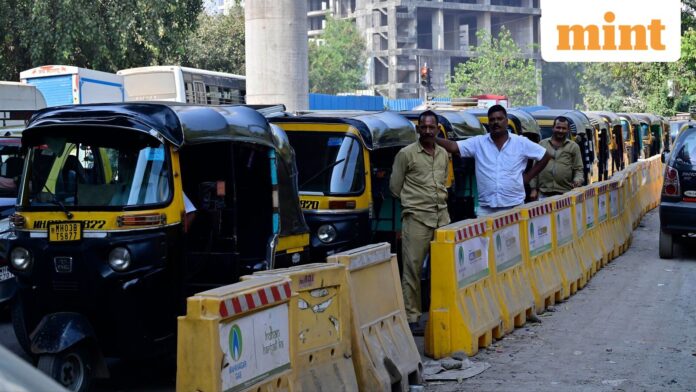Mumbai, India’s financial hub, saw long lines at fuel stations on Monday, November 17, as a damaged major gas pipeline disrupted supply, affecting autorickshaws and taxis. However, the corporation reportedly restored the supply gradually in the evening.
What exactly happened?
The disruption was caused by damage from a third party to GAIL’s main gas supply pipeline within the Rashtriya Chemicals and Fertilisers (RCF) premises, impacting the flow to its City Gate Station (CGS) at Wadala, a crucial entry point for gas supply to Mumbai. This interruption resulted in lower pressure throughout the network, affecting numerous CNG stations in the city.
According to Hindustan Times, Mahanagar Gas Limited (MGL) on Sunday stated, “Due to damage to the main gas pipeline inside RCF compound, the gas supply to MGL’s City Gate Station (CGS) at Wadala has been affected.”
It added, “MGL is ensuring that supply to its domestic PNG (Piped Natural Gas) consumers is maintained on priority without interruption.”
Which locations were impacted?
MGL mentioned that the hit had stopped the supply to CNG stations across Mumbai, Thane and Navi Mumbai, comprising pumps providing services to public transport undertakings.
What did affected ones say?
Mumbai has around 130–140 CNG stations, including those operated by MGL. Many of these pumps have been non-operational since morning due to low gas supply pressure, Chetan Modi, president of the Petrol Dealers Association (Mumbai) said yesterday, according to PTI.
He added that, in a recent conversation with MGL officials, he was informed that efforts to restore normal CNG supply are underway on a war-footing basis, but full repair of the damaged RCF pipeline could take the entire day. “I have kept my own pump shut since morning as there is no (gas supply) pressure,” Modi stated.
Anil Garg, leader of a school bus operator’s body, noted their operations were affected due to the CNG shortage. “Many school buses in the Mumbai Metropolitan Region are facing problems in getting CNG,” he mentioned, adding that they have been compelled to combine the school bus routes.
Meanwhile, as per HT, Sufiyan Khan, an auto rickshaw owner-driver said, “As it is, I end my day by 5.30 pm and start again before dawn. I don’t want to wait in a long queue later. I will check for gas availability in the morning.”
Prices surge on Ola and Uber platforms
The shortage also led to surge pricing on ride-hailing platforms such as Ola and Uber. A trip from Mira Road to BKC, usually priced between ₹400 and ₹450, jumped to ₹550 and later exceeded ₹600 on Sunday, HT report noted. The precise count of black-and-yellow taxis, auto rickshaws, and private cabs taken off the streets was not immediately known.
“Gas supplies across MGL’s network will normalise once the damage is rectified and supply is restored to CGS Wadala,” MGL’s spokesperson said.
CNG shortage, Mumbai Metropolitan Region, school bus operations, ride-hailing platforms, gas supply disruption, school bus routes, gas supply pipeline, Mumbai, gas pipeline, CNG stations, fuel stations, Mahanagar Gas Limited, GAIL, gas supply, Piped Natural Gas, City Gate Station, Mumbai cng news, Mumbai news
#Mumbai #CNG #crisis #Long #queues #autorickshaws #taxis #hit #damage #major #gas #pipeline #Explained

